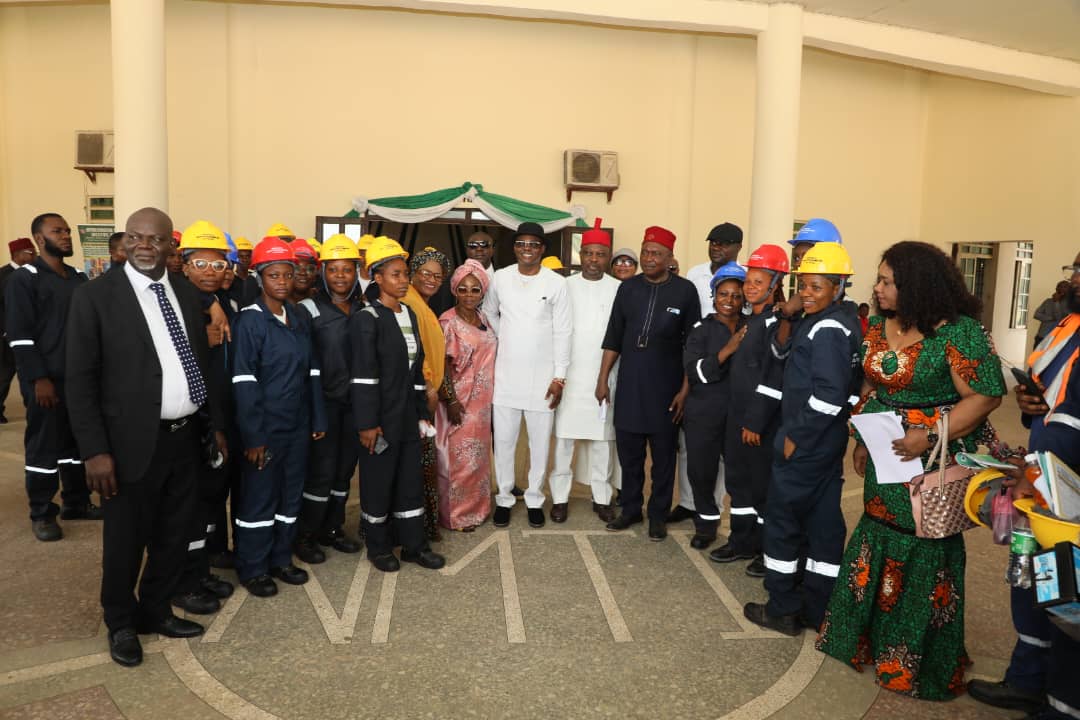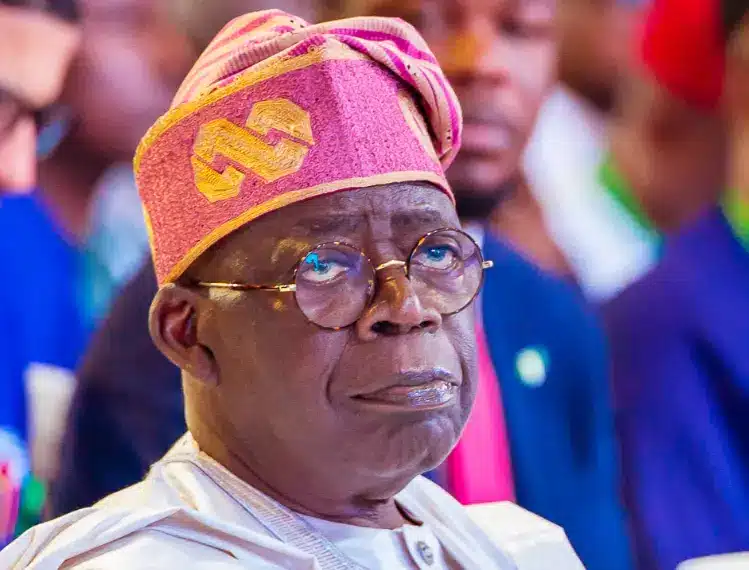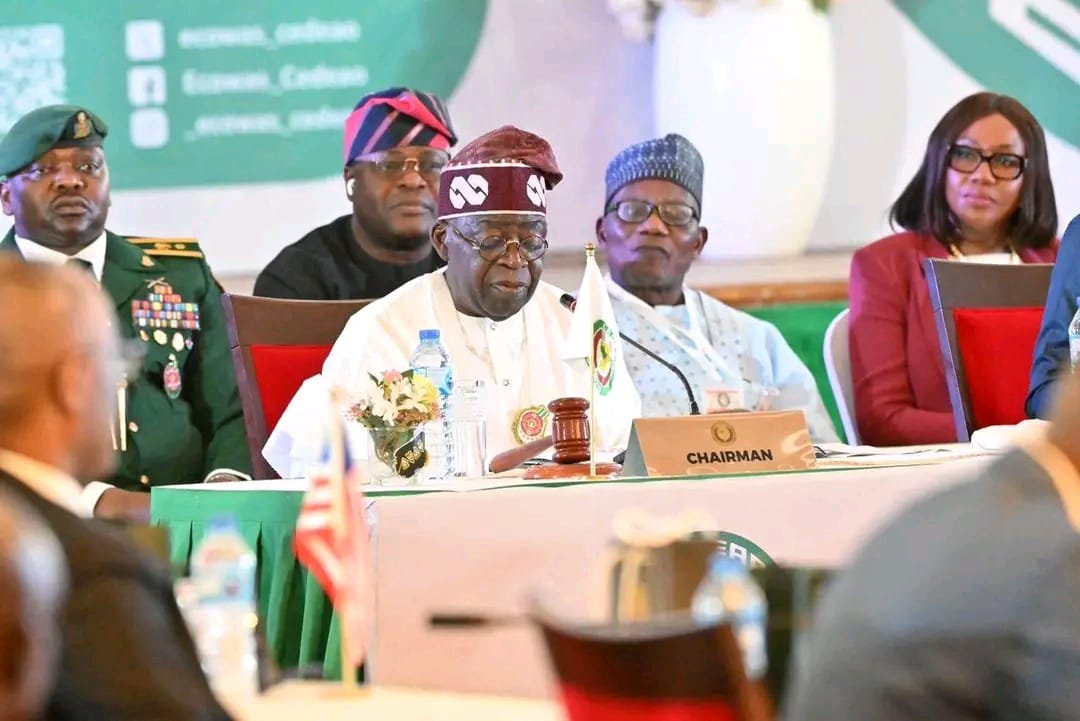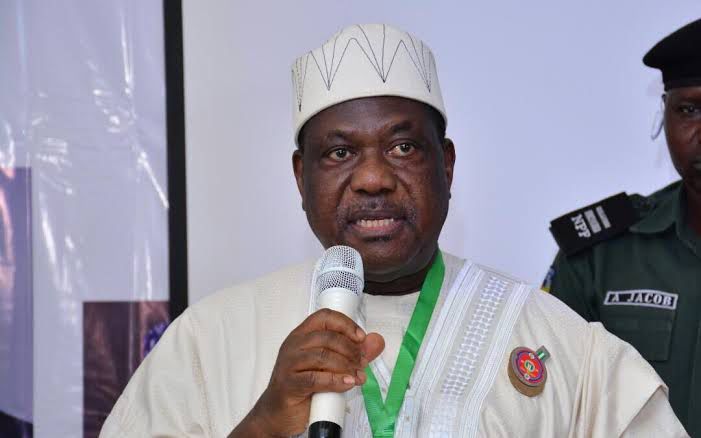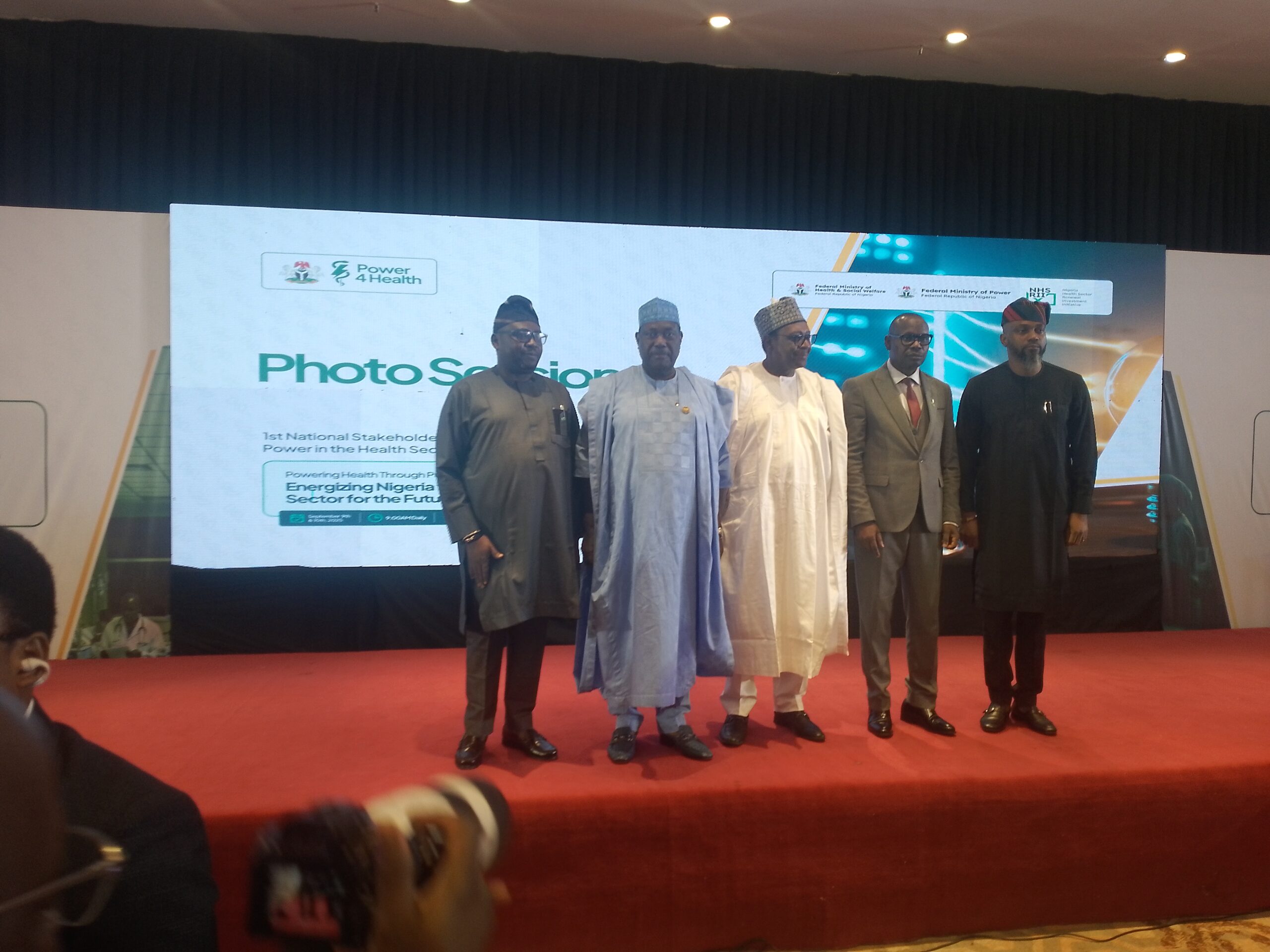
By Fatima Saka
President Bola Ahmed Tinubu has declared that his administration will prioritise sustainable electricity supply in Nigeria’s hospitals, describing persistent power outages in health facilities as a crisis that “costs lives” and must end.
Speaking through Senator George Akume, as Secretary to the Government of the Federation, at the National Stakeholders Dialogue on Power in the Health Sector held on Tuesday in Abuja, the President said reliable and affordable power is central to improving healthcare delivery and restoring public confidence in the system.
Tinubu commended the collaboration between the Federal Ministry of Health and Social Welfare and the Federal Ministry of Power, stressing that government agencies must work as a team to deliver solutions rather than operate in silos.
“In surgical theatres, maternity wards, intensive care units, laboratories, and emergency rooms across the country, power outages too often compromise safety, interrupt care, and cost lives. These outages cannot continue, and under our administration, they should not. Lives are at stake. We must act now,” the President declared.
He affirmed that tackling energy challenges in hospitals is integral to the Renewed Hope Agenda, which seeks to address energy poverty, decentralise supply, and promote private sector participation. Through the Energy Transition Plan and ongoing power sector reforms, Tinubu outlined government’s commitment to expanding off-grid solar and hybrid systems for critical health infrastructure, incentivising private investments, and leveraging blended financing with development partners.
The President called on health institutions to embrace sustainable, community-owned systems instead of temporary fixes, and urged development partners and private investors to scale up context-driven energy-health interventions.
“This National Dialogue must not be a mere talkshop. It must yield actionable outcomes including alignment of policies, institutionalisation of energy audits in hospitals, mobilisation of social investment and green financing, and establishment of a results-driven accountability framework,” he said.
Tinubu congratulated the Ministers of Health and Social Welfare, Professor Muhammad Ali Pate and Dr. Iziaq Adekunle Salako, alongside the Minister of Power, Chief Adebayo Adelabu, for convening the dialogue. He assured participants that the initiative enjoys his full political backing.
“The success of this initiative will not be measured by the speeches we deliver but by the uninterrupted light in our hospitals, the hum of functioning equipment, and the renewed confidence of every Nigerian who walks into a public health facility,” the President stated.
Here’s a polished version of the text you shared. I’ve tightened the language, smoothed transitions, and improved clarity and flow while keeping the original tone and emphasis intact:
Professor Muhammad Ali Pate, Coordinating Minister of Health and Social Welfare, emphasized that over the past three years, President have been very clear: our country faces many long-standing challenges across almost every sector. Their call has been consistent, we must focus on solutions.
“That is exactly what we have been doing in the health sector. This initiative is another step toward addressing difficult, long-standing problems in a system that has historically underperformed compared to many other countries. Over the last two years, however, we have begun to see real transformation, day by day.
“We are improving governance, strengthening infrastructure in primary healthcare, upgrading equipment, and addressing financing. Today, we add reliable power in health facilities to this progress. Alongside this, we are advancing reforms across the value chain, improving health security, and laying the scaffolding for a health system that can truly serve Nigerians.
“Millions of our citizens are already benefiting from better access to quality health services, and our hospitals, many of their leaders are here today, are playing a central role in this transformation.
“But there are two critical elements still needed for Nigeria’s health system to leapfrog into a new era: power and connectivity. With reliable electricity and strong internet connectivity to drive digital transformation, our health system will not only improve dramatically, but it will also stand as a model for the continent and beyond. We have the privilege of outstanding health workers, a large population, organized financing, and growing infrastructure. If we combine these with power and connectivity, we will finally end the era of medical tourism.
“This discussion also links to our dialogue last week on national health financing, where we identified interventions that will accelerate progress. At the heart of it all is funding. Where will the money come from? As the Honourable Minister of Power has rightly said, government revenue alone cannot sustain the expansion we need in both public and private sectors.
“That is why partnerships matter. The Infrastructure Concession Regulatory Commission (ICRC), which regulates public-private partnerships, is a key partner as we work to mobilize private capital in a well-regulated manner. Public financing will play a role, and so will development financing, but mobilizing private capital is essential to accelerating our transformation. Public-Private Partnerships (PPPs) offer a practical path forward.
“Let me conclude by assuring you that we will continue to deliver solutions. Today marks one more important milestone. Honourable Ministers of Health and Power, I will remain your cheerleader as we drive this forward,” Professor Pate.
Dr. Iziaq Adekunle Salako, Minister of State for Health and Social Welfare, warned that unreliable electricity remains one of the most pressing barriers to healthcare delivery in Nigeria, calling for urgent and sustained collaboration across sectors to resolve the crisis.
Dr. Salako referenced a recent BudgIT survey which revealed that frontline health workers identified poor electricity supply as the second biggest obstacle to improved service delivery nationwide, second only to funding gaps.
He described the findings as alarming, noting that without electricity, health facilities cannot run critical equipment such as ventilators, incubators, operating theatre lights, blood banks, or digital health systems.
“Every time a hospital is plunged into darkness, lives are put at risk. We cannot talk about safe motherhood, effective surgeries, or digital health without power,” Salako stressed.
The Minister underscored that the dialogue represented an opportunity to move beyond rhetoric to action. He expressed confidence that stakeholders would design a concrete roadmap to address electricity challenges in primary health centres, general hospitals, and teaching hospitals across the country.
According to him, the federal government is already implementing reforms through the Health Sector Renewal Investment Initiative (HSRII), a flagship programme of the Tinubu administration aimed at transforming Nigeria’s health system by expanding access, improving infrastructure, and integrating technology.
“The Health Sector Renewal Investment Initiative is headed in the right direction,” Salako said. “But without reliable energy, our investments will not yield full value. That is why this partnership with the Ministry of Power is so critical.”
Salako commended the Ministry of Power, development partners, and private sector actors for their ongoing efforts to electrify healthcare facilities using a mix of grid extension, decentralised solar mini-grids, and hybrid solutions. He called for deeper collaboration across government and non-state actors, stressing that the scale of the problem required joint ownership.
“This dialogue is not just another meeting, it is about saving lives. It is about ensuring that no woman dies in labour because the operating theatre went dark. It is about ensuring that no vaccine spoils in storage because the fridge failed. It is about ensuring that no patient is denied treatment because machines cannot be powered,” he said.
He assured stakeholders of President Bola Ahmed Tinubu’s full commitment to addressing the problem, noting that energy and health remain top priorities under the administration’s Renewed Hope Agenda.
“With the leadership and commitment of Mr. President, I believe we can transform healthcare in Nigeria. But we must be deliberate. We must act together. We must sustain the momentum,” Salako urged.
He closed his remarks with a passionate call for unity: “Let us work together to make a difference. Powering health is not optional, it is essential for our survival, our dignity, and our future as a nation.”
Also addressing the gathering,Adebayo Adelabu Minister of Power, described the event as a turning point in strengthening the link between energy access and healthcare delivery. He said the dialogue underscored the importance of breaking down silos across sectors, stressing that no health system could function effectively without stable, reliable power.
“Electricity is the lifeblood of economic growth and social services. By bringing health and power together, we are sending a clear message: collaboration, cooperation and partnership are no longer optional—they are essential,” Adelabu declared.
The Minister outlined key reforms driven by President Tinubu’s administration, including:
The Electricity Act 2023, which decentralised the power sector, allowing states and subnational entities to generate, transmit and distribute electricity.
Opening the sector to private investment, reducing reliance on government funding and enabling global development partners to participate.
The National Integrated Energy Policy, which provides clear regulatory and investment frameworks for energy players.
Nigeria’s Renewable Energy Transition Plan, targeting carbon neutrality, reduced generator dependence, and affordable clean power.
Adelabu highlighted ongoing projects led by the Rural Electrification Agency (REA), such as deploying solar mini-grids to primary healthcare centres and teaching hospitals. He noted successes recorded during the COVID-19 pandemic when REA-powered facilities ensured uninterrupted service delivery.
“These interventions are already saving lives in rural and remote areas, where doctors and midwives can now work at night, surgeries are no longer delayed, and emergency care is possible,” he said, stressing the need to scale up projects nationwide.
In her welcome address, Daju Kachollom, Permanent Secretary of the Ministry of Health and Social Welfare, , said the dialogue theme reflected government’s mission to ensure that every Nigerian, regardless of location, has access to quality healthcare powered by sustainable energy.
“When there is no electricity, maternal care is endangered, life-saving surgeries are delayed, vaccines lose potency, and digital health systems are disrupted. Power in health is not abstract infrastructure—it is a matter of life, dignity, and hope,” Kachollom said.
She added that the high point of the dialogue would be the signing of a historic multi-stakeholder compact, uniting government, private sector, civil society, innovators, and development partners to ensure no health facility in Nigeria is left in the dark.
READ ALSO: FG Unveil Safe Blood Project to End Preventable Deaths from Unsafe Transfusions
Tinubu Driving Responsible Borrowing to Tackle Nigeria’s Debt Burden — Speaker Abbas
Also speaking, Mahmuda Mamman, Permanent Secretary of the Ministry of Power, , noted that unreliable electricity undermines healthcare delivery, interrupts essential procedures, endangers patient safety, and raises operational costs.
“Our drive to Universal Health Coverage and the Sustainable Development Goals will remain elusive unless we decisively close the energy gaps in the health sector,” Mamman said, pointing to initiatives such as the Energy Transition Plan, decentralised solar systems for schools and hospitals, and energy efficiency programmes in public buildings.
The dialogue is expected to chart concrete pathways for unlocking innovative financing, scaling climate-smart energy solutions, strengthening governance and accountability, and ensuring equitable access to reliable power across Nigeria’s health facilities.

